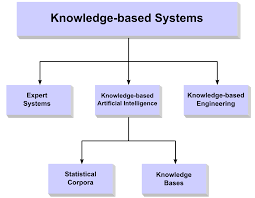Knowledge bases are online databases or repositories that contain information and data on a particular topic or subject. They are designed to provide users with easy access to information and resources that they need to complete a task or solve a problem.
Knowledge bases can be created and maintained by individuals, organizations, or companies, and can cover a wide range of topics, from technical support to product information to customer service. They can be accessed through various channels, including websites, mobile apps, and chatbots.
When it comes to knowledge bases, there are four key concepts that are important to understand: accuracy, relevance, completeness, and consistency.
Accuracy
The accuracy of a knowledge base refers to how correct its information is. It is essential for a good knowledge base to be accurate because this can help users avoid making mistakes. One way to maintain accuracy is by having a good review process for information that is added to the knowledge base, ensuring that it is correct and up-to-date.
Relevance
The relevance of a knowledge base refers to whether the information contained within it is useful to the users. The information within a knowledge base should be aligned with the needs of the users, which may require regular assessments of its relevance. For example, a user manual for a software program would need to be periodically updated to remain relevant as new versions and features of the program are released.
Completeness
Completeness refers to whether a knowledge base contains all the necessary information needed for a user to complete a task or problem. This is an essential aspect of a good knowledge base because it makes it more likely that a user can find the answers they are looking for without having to look elsewhere or ask for support.
Consistency
Consistency refers to the uniformity of information within a knowledge base. Ensuring consistency in a knowledge base can be challenging, especially if there are multiple contributors. However, inconsistencies can lead to confusion among users and make it more difficult to find the information they need, thus undermining the value the knowledge base provides. Consistency can be maintained through good documentation standards and guidelines set for contributors.
The Role of Artificial Intelligence in Knowledge Base Creation and Maintenance
Artificial Intelligence (AI) has revolutionized many industries in recent years, and the knowledge base industry is no exception. AI can play a crucial role in knowledge base creation and maintenance by automating repetitive tasks, improving search capabilities, and enhancing user experience.
One of the most significant advantages of incorporating AI into knowledge bases is automated content creation. By using natural language generation algorithms, AI can create instructional content, FAQs, and other materials necessary for knowledge bases. This reduces human workload and ensures a faster response time to frequently asked questions.
AI can also improve the accuracy of information contained in knowledge bases. By using smart algorithms that can analyze massive amounts of data, AI can identify and highlight inconsistencies, inaccuracies, and gaps in knowledge bases, thereby improving content quality.
AI-powered search engines can also help users find what they are looking for quickly and efficiently. These search engines can use machine learning algorithms to learn from user queries and provide more relevant results over time. This provides organizations with the ability to personalize queries and responses to their users based on historical data analysis.
Finally, AI can improve knowledge base maintenance by automating tedious and repetitive tasks such as content updates, data entry, and standard procedure updates, thereby freeing up employee time to focus on more strategic tasks.
Knowledge Base Design and Implementation for Enterprises
One fundamental aspect of knowledge base design for enterprises is ensuring that the information contained in the knowledge base is easily accessible and searchable. This involves implementing a user-friendly interface that allows users to retrieve relevant information quickly and efficiently.
Another critical aspect of knowledge base design for enterprises is content creation. It's essential to create content that meets the user's needs and is relevant to their interests. This includes developing standard operating procedures (SOPs), manuals, FAQs, and other instructional materials that help employees solve problems efficiently.
Lastly, implementing a knowledge base in enterprises requires robust technical infrastructure to host and manage the information. Knowledge bases need consistent updates to remain useful while data privacy regulations must be taken into account.
Conclusion
Knowledge bases are essential resources for organizations, individuals, and communities. Understanding the importance of accuracy, relevance, completeness, and consistency can help create a knowledge base that is easy to use, relevant, and effective. By carefully managing the information contained within knowledge bases, organizations and individuals can ensure that they provide the most comprehensive, accurate, and useful information possible for users.






